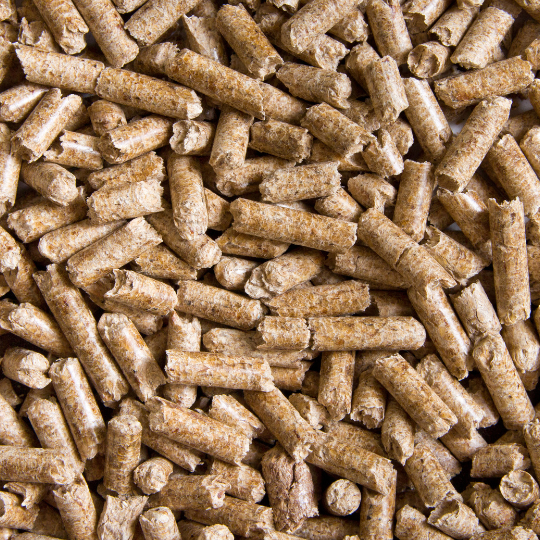Wood pellet fuel suppliers play a vital role in the renewable energy landscape. These suppliers provide an eco-friendly alternative to fossil fuels, supporting sustainable heating and power solutions with pellet heaters, pellet boilers, wood pellets energy, and Energex pellets. The use of wood pellets dates back centuries, but their popularity has surged in recent years due to rising energy costs and environmental concerns. This blog post will guide you through the benefits of using wood pellets, how to choose the right supplier, and what to consider for your energy needs. Discover how switching to wood pellets can make a positive impact on both your wallet and the planet.

Understanding Wood Pellet Fuel
What Are Wood Pellets
Here’s a paraphrased version with “wood pellet fuel suppliers” included in sequential order:
Wood pellets, a form of biomass fuel, are made from compressed sawdust and wood shavings. These small, cylindrical pellets, usually around six to eight millimeters in diameter, burn efficiently and produce significantly less smoke compared to traditional firewood. This efficiency makes pellet heaters a preferred option for heating larger homes. Many wood pellet fuel suppliers provide this eco-friendly solution to meet the growing demand for sustainable heating.
How Pellets Are Made
The production of wood pellets involves several steps. First, raw materials like sawdust are collected. Next, these materials undergo drying to reduce moisture content. Once dried, they are ground into a fine powder. The powder is then compressed under high pressure to form pellets. This process ensures that the pellets have consistent size and density.
Composition and Production Process
Wood pellets primarily consist of lignin and cellulose from wood fibres. Lignin acts as a natural binder during compression. The production process requires careful control of temperature and pressure. High-quality pellets have low ash content and high energy density. The local pellet fuel market has seen fluctuations, leading to pellet fuel shortages in some areas.

Benefits of Wood Pellets
Renewable and Sustainable
Wood pellets come from recycled wood waste. This process utilises materials that might otherwise go to landfill. They are a renewable resource, as new trees can be planted to replace those harvested for wood. As forests grow back, they continue to absorb carbon dioxide. This cycle supports sustainability in energy production.
Efficiency and Cost Savings
Using wood pellets for energy is efficient. They produce more heat per unit than traditional firewood. This means less fuel is needed to generate the same amount of energy. Many suppliers offer competitive prices for wood pellets compared to fossil fuels. Over time, this leads to significant cost savings for consumers and businesses alike.
Environmental Advantages
Wood pellets have notable environmental benefits. They produce lower emissions than coal or oil when burned. This results in cleaner air quality. Their use promotes responsible forest management practices. By choosing wood pellets energy, users support a system that encourages sustainable forestry and reduces reliance on non-renewable resources.
Estimating Fuel Usage
Factors Affecting Consumption
Several factors influence the amount of wood pellet fuel a household needs. Heating requirements vary based on climate and insulation quality. Homes in colder regions typically consume more fuel than those in milder climates.
The size of the space being heated also plays a role. Larger homes require more tonnes of pellets to maintain comfortable temperatures and heat. The efficiency of the heating system is another important aspect. Modern, high-efficiency stoves burn pellets more effectively, reducing overall consumption.
Calculating Your Needs
To determine your specific fuel supply needs, start by assessing your heating requirements. Calculate the square footage of your home. Use this number along with local climate data to estimate yearly fuel use.
A general guideline suggests that a well-insulated home may need about 4-6 tonnes of pellets per year. This varies depending on usage patterns and outdoor temperatures, so consulting wood pellet fuel suppliers can help you make more accurate estimates.
Next, consider your heater’s efficiency rating. A higher rating means less fuel is needed for the same heat output.
Finally, monitor your actual usage over time. Keeping records helps refine future estimates and ensures you have enough pellets on hand.

Finding Wood Pellet Fuel Suppliers
Where to Buy Pellets
Customers can find wood pellet fuel suppliers at various locations. Local hardware stores often stock pellets, especially during colder months. Online marketplaces also provide a wide selection of brands and types. Many suppliers offer home delivery, making it convenient for customers.
Choosing a Supplier
Selecting a quality supplier is critical for effective heating. Look for suppliers with positive customer reviews and established reputations. Check if they provide certifications that guarantee the pellets meet industry standards. It’s important to ask about the source of the wood used in the pellets. Sustainable sourcing ensures that the product is environmentally friendly.
Bulk Delivery Options
Bulk delivery options are available for those needing larger quantities. Many suppliers offer discounts for bulk orders, making it more economical. Customers should inquire about delivery times and costs before placing an order. A reliable supplier will ensure timely delivery and quality assurance.
Pellet Supply in Tasmania
Current Supply Situation
Wood pellet retailers in Tasmania face a dynamic market. The demand for pellet supply has increased significantly over the past few years. This rise is due to the growing interest in renewable energy sources. Local suppliers work hard to meet this demand, ensuring that customers have access to quality products. Today, many retailers offer a variety of wood pellets suited for different heating needs.
Hardwood Pellet Production
Hardwood pellets are particularly popular among consumers. They provide a higher energy output compared to softwood options. In Tasmania, production facilities focus on sourcing sustainable timber. This practice ensures that the hardwood used is responsibly harvested. As of 2023, local manufacturers have ramped up their output to keep pace with increasing orders. This commitment to quality and sustainability strengthens the market position of Tasmanian pellet suppliers.
Past Supply Challenges
Historically, suppliers faced challenges with consistency in pellet supply. Fluctuations in raw material availability impacted production rates. Logistical issues often delayed deliveries. These factors led to shortages during peak demand seasons. However, recent investments in infrastructure have improved reliability. Suppliers now manage inventory more effectively, ensuring that customers receive their orders on time.

Conclusion
Wood pellet fuel is a smart choice for your heating needs. You’ve seen the benefits, from efficiency to sustainability. Knowing how to estimate your fuel usage and finding reliable suppliers ensures you make informed decisions. In Tasmania, you have access to quality pellets that can keep your home warm while being eco-friendly.
Now it’s time to take action. Research local suppliers and compare their offerings. Don’t settle for less when it comes to your heating solutions. Embrace wood pellets and enjoy a cleaner, greener energy source. Your comfort and the environment will thank you for it.
Frequently Asked Questions
What is wood pellet fuel?
Wood pellet fuel consists of compressed sawdust and wood shavings. It is a renewable energy source, commonly used in heating and power generation. Its efficient burning produces minimal emissions, making it an eco-friendly alternative to fossil fuels.
What are the benefits of using wood pellets?
Wood pellets offer numerous benefits, including high energy efficiency, low emissions, and cost-effectiveness. They are easy to store and handle, providing a convenient heating solution while supporting sustainable forestry practices.
How do I estimate my fuel usage?
To estimate fuel usage, consider your heating requirements and the efficiency of your appliance. Calculate the square footage of your space and consult your wood pellet stove’s specifications for average consumption rates per hour or day.
Where can I find reliable wood pellet suppliers?
Reliable suppliers can be found through online searches, local directories, or industry associations. Look for companies with positive reviews, certifications, and a commitment to quality products and customer service.
Is there a difference between hardwood and softwood pellets?
Yes, hardwood pellets generally provide more heat and have lower ash content than softwood pellets. However, softwood pellets ignite faster and may be preferred for specific applications. Choose based on your heating needs and preferences.
Are wood pellets suitable for all types of stoves?
Not all stoves are designed for wood pellets. Ensure your appliance is specifically made for pellet fuel to achieve optimal performance and safety. Always check the manufacturer’s guidelines before use.
What should I consider when purchasing wood pellets?
When purchasing wood pellets, consider the type (hardwood vs softwood), moisture content, and certification standards. Quality pellets will burn efficiently with minimal ash, ensuring a better heating experience and less maintenance.
In conclusion, if you are eager to delve deeper into the details of coir products, feel free to explore our website at www.bertwin.com.au. Additionally, for direct and instant connection with our team, you can reach us through the following WhatsApp link here. We look forward to providing you with the information and assistance you need.
Read Also : Reviews Wood Pellets 15kg Bags: Best Options for Efficient Heating
